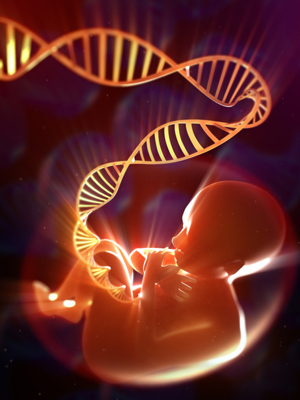One Step Closer to Gattaca?
Main Article Content
Abstract
What if you could know the complete genetic make-up of your child before he or she is born? With the ability to sequence prenatal DNA, this is no longer a “what if” question. In the M.I.T Technology Review, Antonio Regalado reported that “sequencing the DNA in the blood of a pregnant woman could reveal the full genetic code of the fetus.” But this innovation poses some ethical concerns. Does our genetic make-up define us?
There is risk of discrimination towards the fetus. This latest technology will shed light on whether the infant will be born with birth defects or other disabilities, be at risk of certain diseases later in life, and have certain physical characteristics. Regalado reports that at present, about 65% of US women choose abortion after finding out that their child will be born with Down Syndrome. It is possible that the availability of this service will cause some form of eugenics, where a woman will carry her baby to term only if the baby has desirable characteristics. What criteria would a baby have to fulfill in order to be accepted into our society? The thought that we would stifle any child’s potential to do great self and social good simply because of his or her genetic make-up is frightening. This is true especially when we consider how many diseases are determined by factors other than our genes, or how many come into effect later in life, after humans are known to be “most productive” and contribute to society.
Another question to consider is whether we adequately understand the information from our genes. Parts of our genes are known to have direct link to genetic disorders, others are still being debated. Some diseases are actionable, others are not. Depending on what diseases would be revealed after screening, families might incur additional unforeseen burdens. Is there a benefit of sequencing prenatal DNA from the fetus’ point of view? Regaldo argues that “while adults can decide whether to undergo genome sequencing, an unborn child can’t consent to knowing its genes”, and the consequence of this procedure could adversely affect the child’s entire life.
Common congenital diseases (such as cystic fibrosis and beta-thalassemia) are caused when a child inherits two defective versions of a gene, one from each parent. In cases like this, it would be better if both parental DNA were sequenced to determine the probability of the disease affecting the child. The burden of dealing with that probability should be something parents are willing to take when having a child, but, at times, this does not seem to be the case. The issue at hand seems to be the amount of control parents should have over the genetic outcome of their children. Is this similar to our attitudes toward ordering a certain marketing product, expecting it to come in perfect condition and working order?
Related Article:
“Prenatal DNA Sequencing” by Antonio Regalado
April 23, 2013. M.I.T. Technology Review.
http://www.technologyreview.com/featuredstory/513691/prenatal-dna-sequencing/
Article Details

This work is licensed under a Creative Commons Attribution 4.0 International License.

